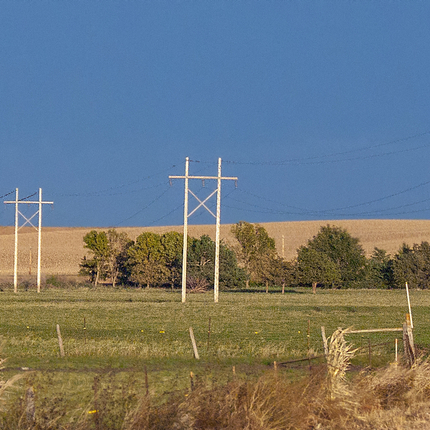The Midwest and Great Plains is an area that has a bright future in renewable energy, especially in rural areas. Besides bringing cheap and clean energy to these states, renewable energy also brings new manufacturing and income sources that can reinvigorate local economies. But taking full advantage of the renewable potential in these states requires a way to transport energy from where it is generated to where it can be used by homes and businesses.
As the way we generate energy continues to transform, our electric grid is doing the same. A robust and expanded transmission system allows more communities to use renewable energy, and can also provide additional benefits to communities where these projects are built. Transmission projects can bring new tax revenue to local counties, create new jobs during the construction, and create new economic activity when the line is being built.
One project currently under consideration in Missouri is the Grain Belt Express project. This week, the Missouri Public Service Commission has held public hearings on this project, hearing testimony on the project before making a final decision on its approval. These hearings are a key part in transmission development – they allow regulators to hear the concerns of landowners and community members, and not only make a final decision but help alert them to important considerations related to the construction and operation of transmission.
Having the transmission in place to transport renewable energy is key to continuing the trend of new wind energy development, and allowing people across the Midwest to access clean energy when they need it. As more renewable energy is developed, we will require more and better infrastructure to connect it to the electric grid. As Missouri continues to grow the state’s economy, it’s essential that the state has access to affordable power, and wind energy produced locally and from neighboring states fits the bill.





